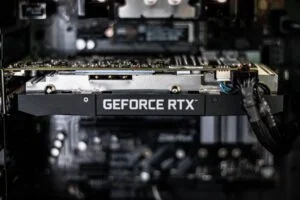In the world of gaming, every second counts. From lightning-fast response times to seamless graphics rendering, the number of cores in your processor can significantly impact your gaming performance. In this article, we will explore the importance of cores in gaming and provide insights into how many cores for gaming you should consider for a top-notch gaming rig. So, if you’re ready to take your gaming experience to the next level, read on to discover the optimal core count for your gaming needs.
Choosing the ideal number of CPU cores for gaming can be a daunting task, especially with the plethora of options available on the market. While some games rely heavily on single-core performance, others benefit from a higher core count. By understanding the role of cores in gaming and considering factors such as game requirements, budget, and future-proofing, you can make an informed decision that will elevate your gaming experience. So, let’s dive in and explore the world of processor cores for gaming.
What are CPU cores and how do they affect gaming performance?
Central Processing Unit (CPU) cores are the brains of your computer. They are responsible for carrying out the instructions of the software you run, including games. The more CPU cores you have, the more instructions they can process at the same time.
Clock speed is the speed at which the CPU cores operate. It is measured in gigahertz (GHz). A higher clock speed means that the CPU can process instructions faster.
Thread count is the number of virtual cores that a CPU can create. Each virtual core is like a separate CPU core, but it is not as powerful as a real CPU core.
Modern games are becoming more and more demanding of CPU resources. They often require multiple CPU cores to run smoothly. This is because modern games do a lot of multitasking, such as processing physics, AI, and graphics.
A graphics card is also important for gaming performance. It is responsible for rendering the graphics of the game. However, the CPU still plays a role in-game performance, especially for demanding games.
Extra cores can help improve gaming performance in demanding games. However, they are not always necessary. If you are only playing less demanding games, you can get away with a CPU with fewer cores.
When choosing a CPU for gaming, it is important to consider the type of games you play, the resolution and graphics settings you want to play at, and your budget. If you are not sure which CPU is right for you, it is always best to consult with a computer expert.
Here are some additional things to keep in mind about CPU cores and gaming performance:
- Not all games use all of the CPU cores available. Some games are more CPU-intensive than others. For example, open-world games and multiplayer games tend to use more CPU cores than single-player games.
- The clock speed of the CPU cores is also important. A higher clock speed will give you better performance in games that are not well-optimized for multiple cores.
- The thread count of the CPU can also affect performance. A higher thread count can help improve performance in games that are well-optimized for multiple cores.
How many CPU cores do you need for gaming in 2023?
The number of CPU cores you need for gaming in 2023 depends on the type of games you play and the settings you want to play at.
- Quad-core CPUs (4 cores) are still a good option for most games, especially less demanding games. They can provide good performance in 1080p gaming.
- Hexa-core CPUs (6 cores) are a good choice for more demanding games, such as open-world games and multiplayer games. They can provide good performance in 1440p gaming.
- Octa-core CPUs (8 cores) are the best option for the most demanding games and for those who want to future-proof their system. They can provide good performance in 4K gaming.
| CPU Cores | Optimal Performance Level | Examples |
| Quad-core | Good | Intel Core i5-12400, AMD Ryzen 5 5600X |
| Hexa-core | Great | Intel Core i7-12700K, AMD Ryzen 7 5800X |
| Octa-core | Excellent | Intel Core i9-12900K, AMD Ryzen 9 5900X |
It is important to note that the number of CPU cores is not the only factor that affects gaming performance. The clock speed of the CPU cores, the graphics card, and the amount of RAM also play a role.
If you are not sure how many CPU cores you need for gaming, it is always best to consult with a computer expert.
Here are some additional things to keep in mind about CPU cores and gaming performance:
- More cores are not always better. If you are not playing demanding games, you may not see a significant improvement in performance by going with a CPU with more cores.
- The clock speed of the CPU cores is also important. A higher clock speed will give you better performance in games that are not well-optimized for multiple cores.
- The thread count of the CPU can also affect performance. A higher thread count can help improve performance in games that are well-optimized for multiple cores.
Ultimately, the best way to determine how many CPU cores you need for gaming is to test different CPUs with different games. This will give you a good idea of how the different CPUs perform in the games you play.
- Casual gamers: A quad-core CPU like the Intel Core i5-12400 or the AMD Ryzen 5 5600X will be enough for most games.
- Mid-range gamers: A hexa-core CPU like the Intel Core i7-12700K or the AMD Ryzen 7 5800X will give you a good performance boost in more demanding games.
- High-end gamers: An octa-core CPU like the Intel Core i9-12900K or the AMD Ryzen 9 5900X is the best option for those who want the best possible performance in 4K gaming.
The benefits of having more CPU cores for gaming
- Improved multitasking: A multi-core CPU can handle more tasks at the same time, which can be beneficial for gaming. For example, if you are playing a game and also have a streaming application open, a CPU with more cores will be able to handle both tasks without slowing down.
- Smoother gameplay: A CPU with more cores can help to improve gameplay smoothness by reducing stuttering and frame drops. This is especially beneficial for games that are heavily multithreaded, such as open-world games and multiplayer games.
- Better performance in demanding games: As games become more demanding, a CPU with more cores will be able to provide better performance. This is because games are increasingly taking advantage of multiple cores to improve performance.
- Future-proofing: It can help to future-proof your gaming system. This is because games are only going to become more demanding in the future, so having a CPU with more cores will ensure that your system can handle the latest games.

The drawbacks of having too many CPU cores for gaming
- Increased cost: A CPU with more cores will typically be more expensive than a CPU with fewer cores.
- Reduced power efficiency: A high-core CPU will typically consume more power than a CPU with fewer cores. This can lead to shorter battery life in laptops and increased energy bills.
- Lack of optimization: Some games are not well-optimized for multiple cores, so they may not benefit from a CPU with more cores.
- Reduced single-core performance: A Multi-core CPU may have to share resources between the cores, which can reduce the performance of each core. This can be a problem for games that are not well-optimized for multiple cores.
Ultimately, the decision of whether or not to get a CPU with more cores for gaming depends on your individual needs and budget. If you are a casual gamer who does not play demanding games, then you may not need a CPU with a lot of cores. However, if you are a serious gamer who plays demanding games, then a CPU with more cores can give you a performance boost.
Other factors to consider when choosing a CPU for gaming
- Cache size: The cache is a small amount of high-speed memory that is located on the CPU. It stores frequently used instructions and data, which can help improve performance. A larger cache size can help improve performance in games that are memory-intensive.
- Turbo boost: Turbo boost is a feature that allows the CPU to run at a higher clock speed than its base clock speed for short periods of time. This can help improve performance in games that are demanding.
- Integrated graphics: Some CPUs have integrated graphics, which means that they have a graphics processor built into the CPU. This can be useful if you do not want to buy a separate graphics card. However, integrated graphics are not as powerful as dedicated graphics cards, so they may not be suitable for gaming.
- Overclocking: Overclocking is the process of boosting the CPU’s clock speed beyond its default settings. This can boost performance while also increasing the danger of overheating and instability.
- Compatibility: Make sure that the CPU is compatible with your motherboard and other components.
How to choose the right number of CPU cores for your gaming needs?
- The type of games you play: Some games are more demanding of CPU resources than others. If you play games that are heavily multithreaded, then you will benefit from a CPU with more cores.
- Your budget: CPUs with more cores tend to be more expensive. If you are on a budget, you may want to consider a CPU with fewer cores.
- Your other needs: If you do other tasks that require a lot of CPU resources, such as video editing or streaming, then you will need a CPU with more cores.
- Your desired performance: How many frames per second (FPS) do you want to achieve in the games you play? If you want to play games at high resolutions and high frame rates, then you will need a CPU with more cores.








